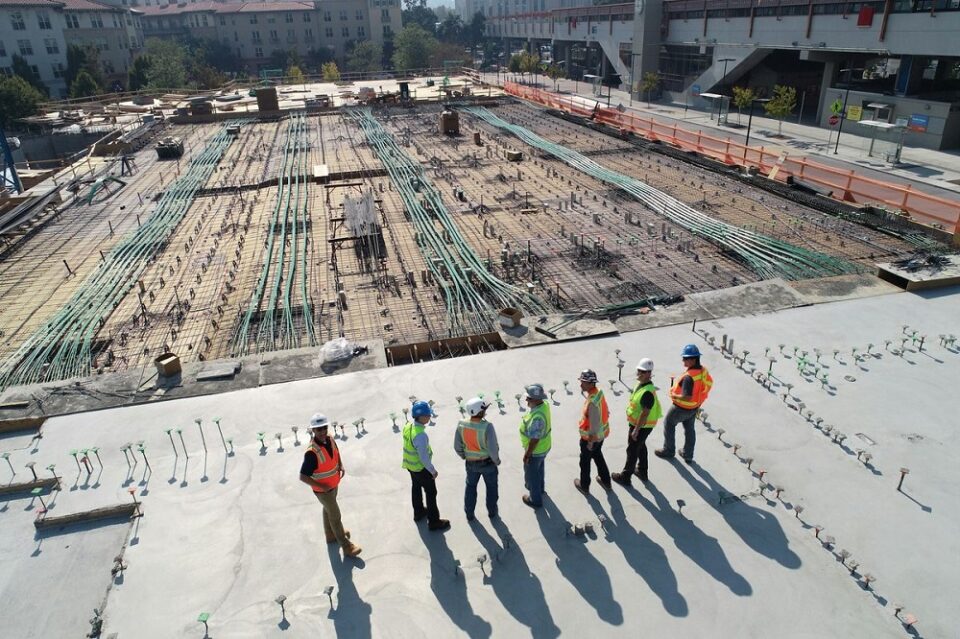Politics doesn’t build bridges—construction companies do. But in today’s world, those two spheres are rarely separate. For an international construction company, staying out of the crossfire while working across borders is more than just smart—it’s essential for survival.
Strategic Risk Mitigation Through Nonalignment Policies
A smart international construction company doesn’t just pour concrete—it drafts policies. Nonalignment policies, crafted early on, help shield firms from being seen as political players. These strategies focus on avoiding public stances on global disputes and instead sticking to technical roles. That distance can help reduce the risk of project delays, forced exits, or hostile local reactions in sensitive regions.
It’s not about ignoring the world’s problems. It’s about reducing the chances of being dragged into them. These policies become especially valuable as companies move across continents, taking on high-stakes infrastructure work in areas where political lines are drawn deep. In global construction, neutrality isn’t just safe—it’s strategic.
Contractual Neutrality Preserving Global Project Pipelines
Agreements hold more than terms and deadlines—they hold protection. Neutral language in contracts allows companies to shield operations when tensions rise. That means no clauses that could be interpreted as favoring one side in a conflict. For an international construction company, this can be the difference between staying on-site or being pushed out by political pressure.
Neutral contracts also make the firm a safer bet for future investors and partners. Clients from diverse regions feel more confident working with a team that won’t jeopardize a project with unintended political entanglements. Global construction thrives on consistency, and contractual neutrality gives both sides a foundation that isn’t likely to shift with the next election cycle.
Diplomatic Project Management Amid Political Volatility
Managing a project across borders takes more than tools and schedules—it demands tact. Project managers working in politically unstable regions often serve as informal diplomats, juggling local customs, government expectations, and international standards. Their ability to stay neutral shapes how the company is perceived on the ground.
A project that’s handled with sensitivity—acknowledging local dynamics without picking sides—tends to face fewer interruptions. Staff are safer. Equipment is secure. An international construction company that invests in culturally aware project leads gains long-term resilience. Diplomatic project management doesn’t end at the job site gate—it echoes across every border crossed.
Operational Continuity Secured by Conflict-Free Stances
Jobs don’t get built in boardrooms—they get built onsite. But if a company becomes associated with a particular side in a conflict, access to those sites can disappear fast. That’s why staying out of disputes protects operations from being suddenly shut down. Equipment stuck at ports, visas denied, or supply routes blocked—these are real risks for firms seen as partial.
By adopting a conflict-free stance, companies can focus on what they do best: building. Operational teams can move more freely, vendors stay cooperative, and timelines stay intact. In global construction, disruptions cost millions. Neutrality saves more than just face—it saves budgets and schedules, too.
Leveraging Neutrality for Cross-Border Construction Partnerships
Neutral players make good partners. In cross-border joint ventures, especially those involving governments or public infrastructure, alignment with a politically neutral international construction company often makes deals easier. Partners want assurance that projects won’t stall due to outside tensions. Neutrality becomes a strength, not a sideline detail.
This position opens more doors than it closes. Regional firms in politically sensitive zones often prefer international partners that avoid making headlines. It gives them access to experience and scale without inheriting controversy. Neutrality isn’t a lack of identity—it’s a sign of professionalism that others respect.
Ethical Procurement Practices Supporting Conflict Neutrality
Where materials come from says a lot. Procurement can easily become politicized—especially if supplies are tied to regions under sanctions or conflict zones. International construction companies that make ethical sourcing part of their protocol keep themselves out of hot water. That includes vetting vendors, avoiding blacklisted suppliers, and tracing supply chains.
This isn’t just about compliance. It shows a deep understanding of global responsibility. Clients and governments notice, and it builds credibility. In global construction, ethics aren’t optional—they’re a quiet force behind every strong bid and every project won in difficult regions.
Reputation Stability Enhanced by Geopolitical Impartiality
In a world where headlines can shift overnight, staying off them is a strategy in itself. Companies tied to conflicts often see long-term damage to reputation, even years after the dust settles. Remaining geopolitically impartial protects more than just immediate business—it safeguards brand trust.
Clients, partners, and even internal teams want stability. They want to work with companies that won’t be canceled by the next policy change or trade shift. By staying neutral, an international construction company builds not just roads or towers—but long-term resilience and relevance.

